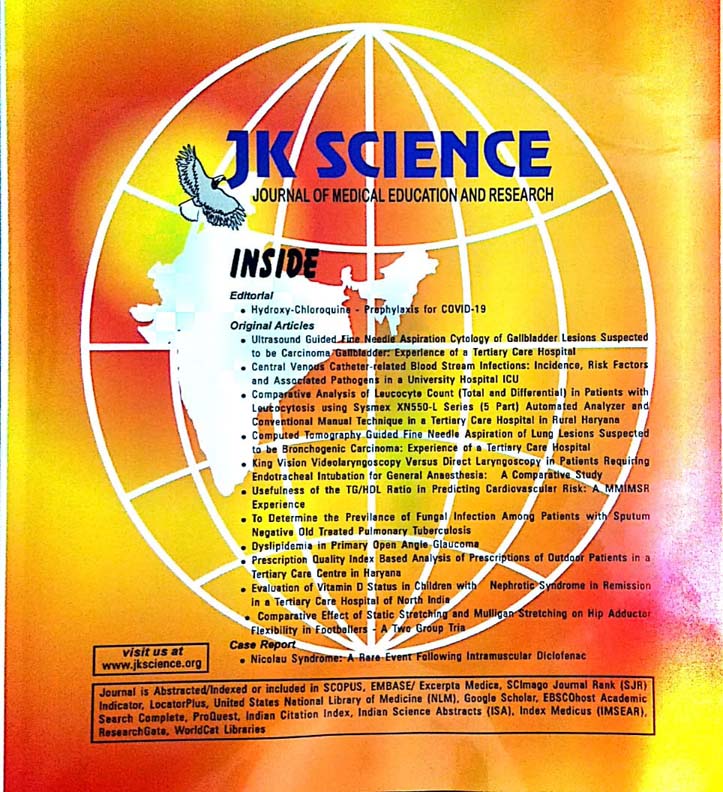Retrospective Analysis of Elderly Patients with Idiopathic Thrombocytopenic Purpura
Keywords:
ITP, Platelets, elderlyAbstract
Background: Idiopathic or immune thrombocytopenic purpura (ITP) is defined as the presence of an isolated low platelet count (thrombocytopenia) with no bone marrow abnormalities, in the absence of any other causes of thrombocytopenia. The incidence of ITP is estimated to be 2 to 5 per 100 000 persons in the general population. ITP is often diagnosed in elderly individuals, typically presenting as a chronic disease (60-80%) with insidious onset or different hemorrhagic expression patterns.
Objective: The objective of the present study was to evaluate ITP in elderly and to assess the risk of bleeding.
Material & Methods: A retrospective analysis of the 40 consecutive patients over a period of 5 years from May 2015 to March 2020 in Govt Medical College, Jammu was done. Diagnosis of ITP was mainly based on patient's history, physical examination, peripheral blood counts, peripheral smear examination and bone marrow examination.
Results: The study comprised a total of 40 patients, out of which 26 were females (65 %) and 14 male patients (35 %) with female to male ratio of 1.8:1. Maximum number of cases were seen in age group 65-70 yrs. followed by 70 - 75 yrs. with the mean age of presentation being 70 years. Bone marrow examination in such cases revealed normal or increased number of megakaryocytes.
Conclusion: This study involved elderly ITP patients (>65 years old). Our results confirm that age influences the hemorrhagic pattern of ITP expression.
Downloads
Downloads
Published
How to Cite
Issue
Section
License
Copyright (c) 2022 JK Science: Journal of Medical Education & Research

This work is licensed under a Creative Commons Attribution-NonCommercial-ShareAlike 4.0 International License.





